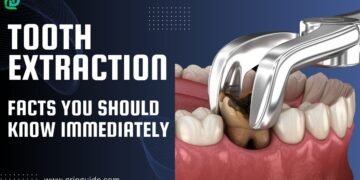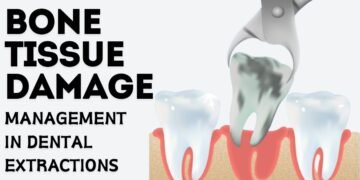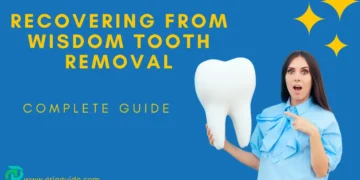Table of Contents
Sinusitis is a condition that causes inflammation of the sinuses, which are the air-filled spaces within the bones of the face. It can be caused by a viral or bacterial infection, allergies, or structural abnormalities in the nasal passages.
Symptoms
The symptoms of sinusitis can vary from person to person, but there are four main symptoms that are commonly associated with this condition:
1. Facial Pain and Pressure
One of the most common symptoms of sinusitis is facial pain and pressure. This pain is often described as a dull, aching sensation that is localized to the affected sinus area. It can be felt in the forehead, between the eyes, or in the cheeks.
The pressure can also cause discomfort and a feeling of fullness in the face.
2. Nasal Congestion
Nasal congestion is another common symptom of sinusitis. It occurs when the sinuses become inflamed and swollen, blocking the normal flow of mucus. This can make it difficult to breathe through the nose and may cause a stuffy or congested feeling.
Nasal congestion can also lead to a decreased sense of smell and taste.
3. Thick, Discolored Nasal Discharge
People with sinusitis often experience a thick, discolored nasal discharge. This discharge can be yellow or green in color and may have a foul odor. It is the result of the body’s immune response to the infection or inflammation in the sinuses.
The discharge may drain down the back of the throat, causing a postnasal drip and a sore throat.
4. Cough and Sore Throat
Cough and sore throat are common symptoms of sinusitis, especially when the postnasal drip irritates the throat. The cough may be dry or productive, meaning it produces mucus.
It can be worse at night or in the morning when lying down. The sore throat may be accompanied by hoarseness and a scratchy or itchy feeling.
Treating Sinusitis
The treatment of sinusitis depends on the underlying cause and severity of the symptoms. In most cases, sinusitis can be managed with a combination of self-care measures and medical treatments. Here are some common treatment options:
1. Self-Care Measures
- Stay hydrated by drinking plenty of fluids, such as water, herbal tea, and clear broths. This helps thin the mucus and promote drainage.
- Use a humidifier or take steamy showers to moisten the nasal passages and relieve congestion.
- Apply warm compresses to the face to alleviate facial pain and pressure.
- Avoid known allergens or irritants that may trigger or worsen sinusitis symptoms.
- Practice good hygiene, such as washing your hands regularly and avoiding close contact with people who have respiratory infections.
2. Over-the-Counter Medications
– Nasal decongestants can help relieve nasal congestion by shrinking the blood vessels in the nasal passages. However, they should not be used for more than a few days, as prolonged use can lead to rebound congestion.
– Pain relievers, such as acetaminophen or ibuprofen, can help reduce facial pain and headache associated with sinusitis.
– Saline nasal sprays or rinses can help flush out mucus and alleviate nasal congestion.
3. Prescription Medications
– Antibiotics may be prescribed if sinusitis is caused by a bacterial infection. It is important to take the full course of antibiotics as prescribed, even if symptoms improve.
– Corticosteroid nasal sprays can help reduce inflammation in the nasal passages and relieve symptoms of sinusitis.
– Antihistamines may be recommended if sinusitis is caused by allergies. They can help reduce nasal congestion and relieve allergy symptoms.
4. Other Treatment Options
– If sinusitis is caused by a structural abnormality, such as a deviated septum or nasal polyps, surgery may be necessary to correct the underlying issue.
– In some cases, sinusitis may be chronic and require long-term management. This may involve regular use of nasal sprays, allergy shots, or other treatments recommended by a healthcare professional.
How Sinusitis Goes Away
Sinusitis can go away on its own with time, especially if it is caused by a viral infection. Most acute cases of Sinus Infection resolve within 2-4 weeks. However, if the symptoms persist or worsen, medical treatment may be necessary.
Sinus Infection caused by bacterial infections may require antibiotics to clear the infection and reduce inflammation. It is important to follow the prescribed treatment plan and complete the full course of medication to ensure the infection is fully eradicated.
Treating Sinusitis at Home
In addition to medical treatments, there are several home remedies that can help alleviate the symptoms of Sinus Infection:
1. Nasal Irrigation
Nasal irrigation involves flushing out the nasal passages with a saline solution. This can help thin the mucus, reduce congestion, and promote drainage. You can use a neti pot, nasal bulb syringe, or a saline nasal spray for nasal irrigation.
2. Steam Inhalation
Inhaling steam can help moisturize the nasal passages and relieve congestion. You can do this by taking a steamy shower or using a humidifier. Adding a few drops of eucalyptus or peppermint essential oil to the steam can also provide additional relief.
3. Warm Compresses
Applying warm compresses to the face can help alleviate facial pain and pressure. You can use a warm towel, or a heating pad set on low. Be sure to test the temperature before applying it to your face to avoid burns.
4. Hydration
Drinking plenty of fluids, especially water, can help thin the mucus and promote drainage. It is important to stay hydrated to prevent the mucus from becoming thick and sticky.
5. Rest and Relaxation
Getting enough rest and relaxation can help boost your immune system and aid in the recovery process. Take time to rest and avoid activities that may worsen your symptoms.
Can sinus pain in teeth be unbearable?
Yes, sinus pain in teeth can indeed be unbearable for some individuals. This type of pain is often due to a condition known as sinusitis, which is the inflammation of the sinuses.
If you’re experiencing severe sinus-related tooth pain, it’s important to seek medical attention. Remember, persistent or severe pain should always be evaluated by a professional to ensure proper treatment and to prevent any potential complications.
Read More about Top Tips for Unbearable Tooth Pain
Conclusion
Sinusitis is a common condition characterized by symptoms like facial pain, nasal congestion, thick nasal discharge, and cough. Treatment options include self-care measures, over-the-counter and prescription medications, and surgery if necessary.
Sinus Infection can resolve on its own, but medical intervention may be required if symptoms persist or worsen. Home remedies like nasal irrigation, steam inhalation, warm compresses, hydration, and rest can also provide relief. It is advisable to seek medical advice for an accurate diagnosis and suitable treatment plan if you are experiencing Sinus Infection symptoms.
FAQs
-
What is Sinusitis?
also known as a sinus infection, is an inflammation of the tissues lining the sinuses.
-
What Causes Sinusitis?
Sinus Infection can be caused by a variety of factors, including viral infections like the common cold, bacterial infections, allergies, and even fungal infections.
-
What are the Symptoms of Sinusitis?
facial pain, nasal congestion, thick nasal discharge, and cough.
-
How is Sinusitis Diagnosed?
Diagnosis typically involves a physical examination, where a doctor may check for tenderness in your nose and throat and look for signs of inflammation.
-
How is Sinusitis Treated?
Treatment depends on the cause and severity of the Sinus Infection. It may include decongestants, saline nasal washes, corticosteroids, antibiotics (for bacterial infections), or antifungal medications (for fungal infections).








